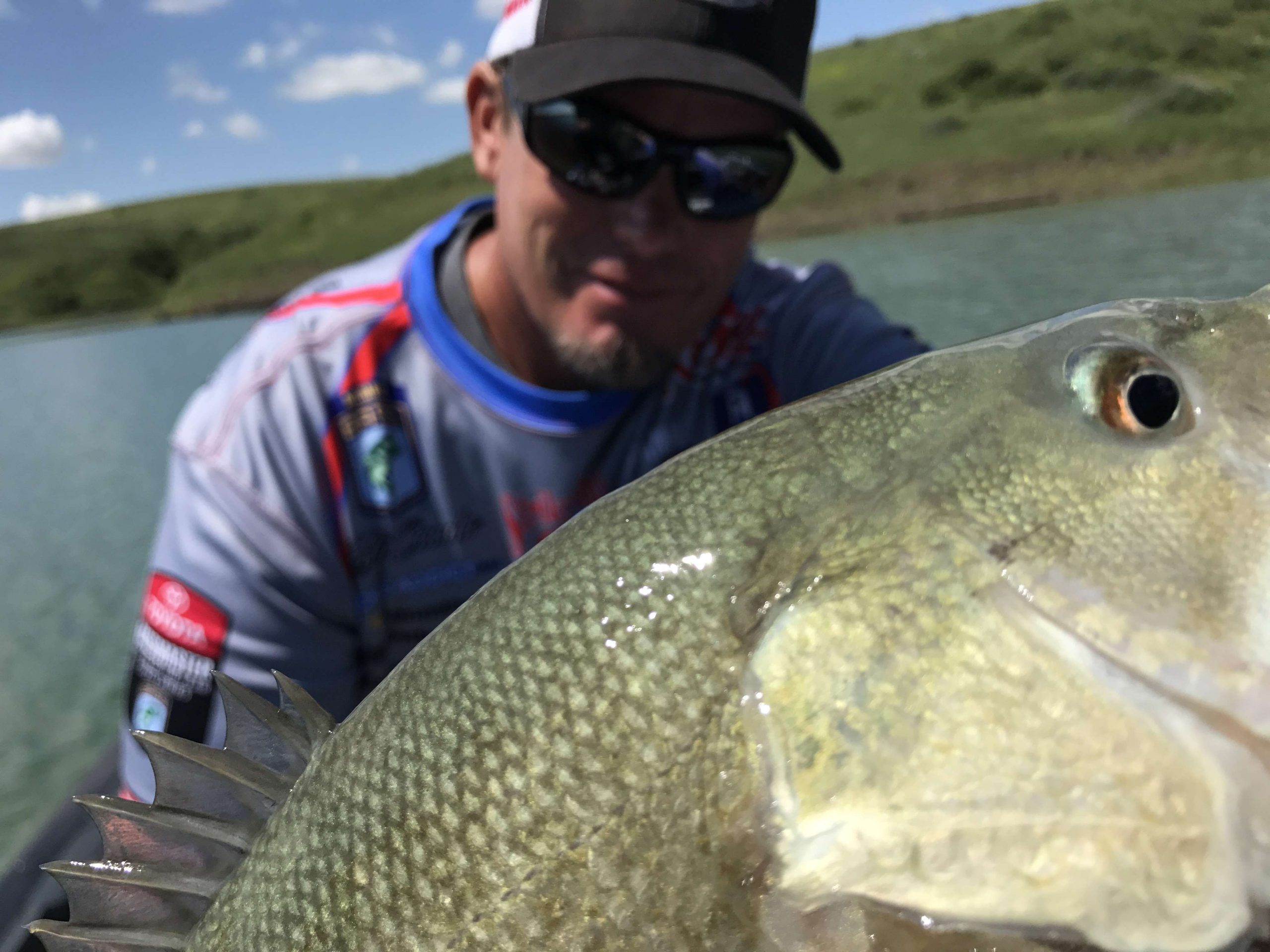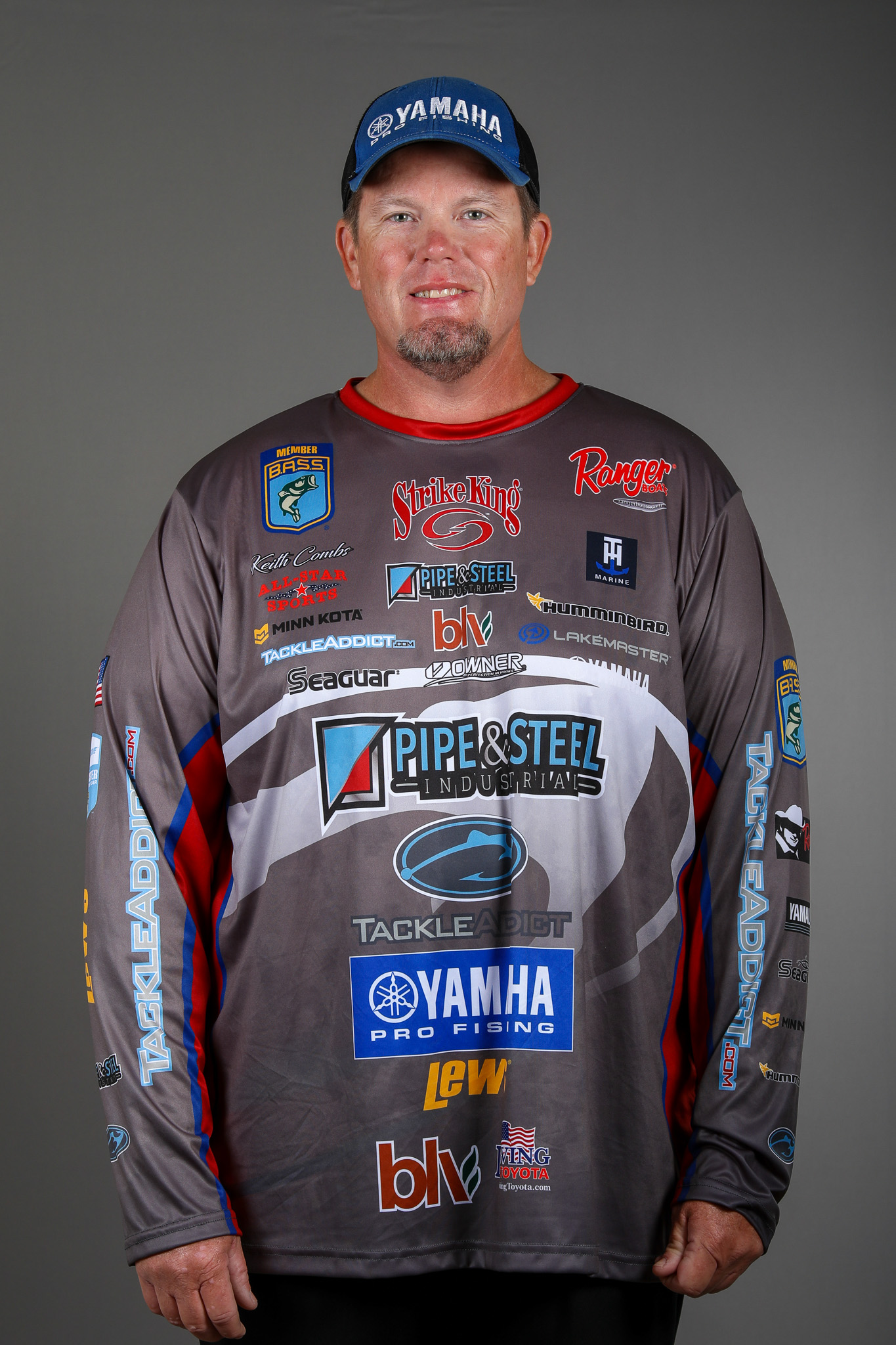
Anyone who says that “practice makes perfect” probably hasn’t fished many tournaments. If you’ve competed long enough you’ve probably had some really bad practices that resulted in good finishes. On the opposite side of the coin, you also have to guard against situations where practice goes really well and then it all falls apart once competition starts. A good practice can kick your butt just as much as a bad one can.
I’m currently in the midst of the toughest season of my professional career, and several of my poor finishes have come after really good practices. In each case, I failed to adjust and I paid the price.
The need to stay open to changing conditions has been particularly important this year because we’ve essentially followed the spawn around the country. The fish haven’t always been on the beds when we arrived, but they were often prespawn or just postspawn. That typically correlates with some of the most inconsistent weather of the year. We’ve experienced heavy rain, cold fronts and driving winds, and all those factors cause the fish to change.
The hardest thing to do is to pull the plug when something that was working well starts to fizzle out.
Most recently, at Oahe, my three-day practice session was really strong. I found a lot of fish up shallow that were willing to eat a jerkbait or a swimbait. I knew that there were probably some fish out deep, too, but I thought that the shallow bite would be just as good, so I put all of my eggs in that one basket. What I didn’t count on was that the wind would muddy up my best banks. In fact, it pushed the mud up to a mile offshore, ruining those areas. If I’d had some deep fish to fall back on, I likely would have done much better.
Grand Lake was another place where pre-fishing went very well. On the third day of practice it was cloudy and rainy, and I really dialed in the prespawn bass. When we started fishing on the first tournament day, though, the sun came out. I knew of some clearer, protected areas would warm up quickly, and my instincts told me to go in there, but I stuck with my mid-depth crankbait on steeper banks. I simply cut off my instincts based on that one day of practice. There were several very good anglers in my same area on the first day who’d similarly fished there on the final day of practice. None of them did well. That should’ve been a sign to change course, but I stayed stubborn and missed the cut. I earned a day off on Saturday, and as I watched Bassmaster LIVE I saw that one of the top five anglers was in the area I’d considered but rejected. It made me sick to my stomach.
During my three days of practice, I try to divide the lake into three equal sections and fish one each day. At the same time, depending on the changing conditions, you might fish the best section on the worst day, which will never provide you with a true reading of its potential. Sometimes that means that the best strategy is to go back to a place when money’s on the line, even if you didn’t have a bite there during practice.
It’s not just changing weather that can turn a good practice into a bad tournament. Even the best areas under the proper conditions can be harmed by fishing pressure. At Lake Martin in Alabama I found a concentration of quality fish in one small tributary, but when I got there on a tournament day 10 of us had to share the confined area. The fish didn’t replenish the way that I thought they would, and it resulted in a terrible performance because I didn’t keep an open mind to try something else.
Not surprisingly, my best finish of the year – fourth at Lake Travis in Texas – came in an event where things were more or less stable throughout the week.
Often several of the top finishers in a given tournament will honestly report that they weren’t on anything good during practice. While that’s never the goal, it can actually be a blessing on some tough fisheries like the Sabine. If you don’t have a lot to go on, sometimes the default choice is to hunker down in an area that has historically been productive and grind it out. If you put your head down and make the most of a bad situation, sometimes you’ll be pleasantly surprised.
The need to keep an open mind is not new to me in any way. I like to think that I am generally pretty versatile and adaptable, but this year there’s no doubt that narrowmindedness has cost me. Many of our sport’s greatest lessons come the hard way.
The takeaway from all of this for me is that no matter how dialed in you think you might be, it pays to have a backup plan, and a backup to your backup if possible. If you’re catching them deep, find something shallow, or vice versa. If you have the winning school chewing the paint off a KVD 2.5, you might still want to test out a Pure Poison. The only thing that’s truly predictable in this sport is that things are always changing.

